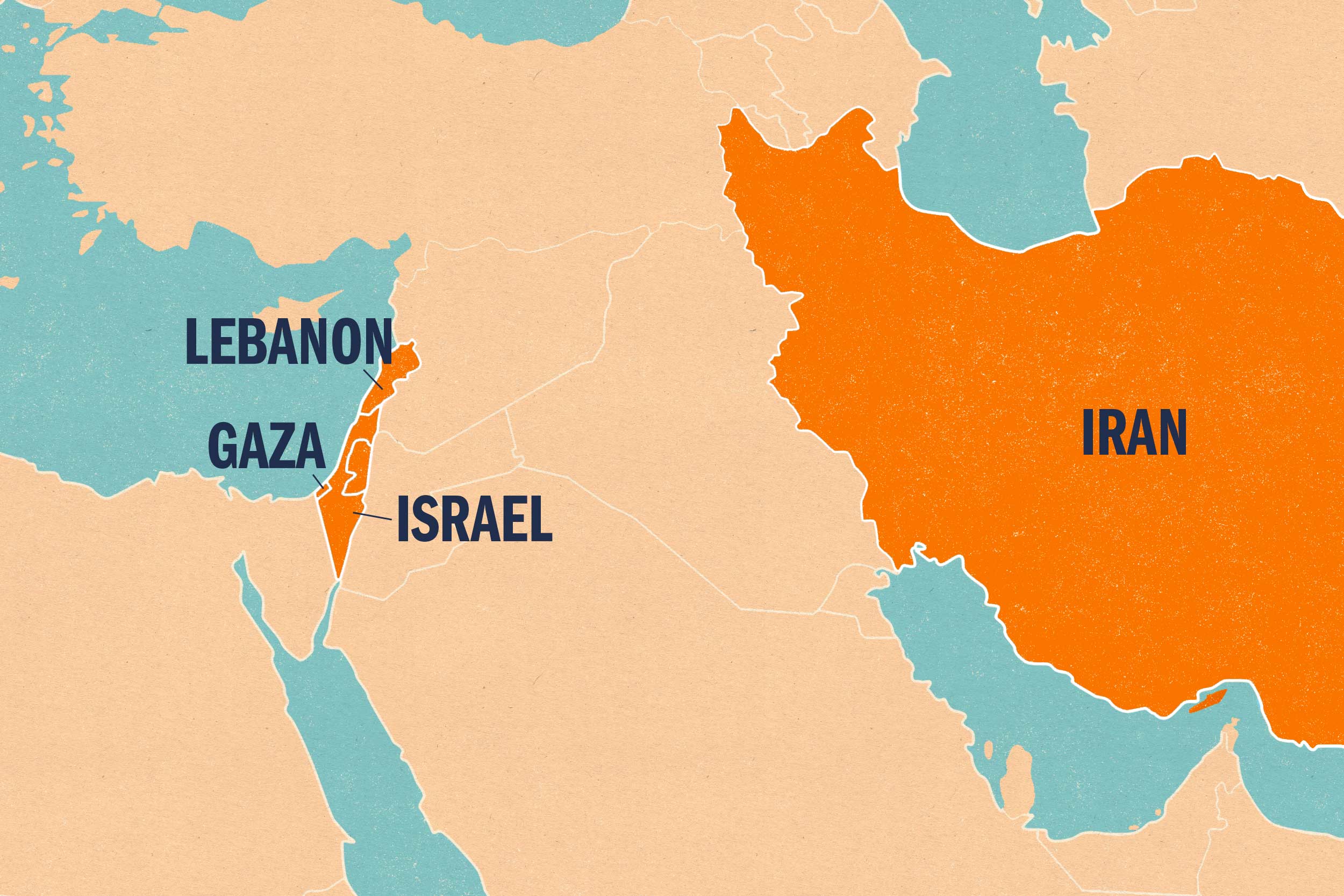The Middle East began a descent into violence and chaos on Oct. 7, 2023, when Iran-backed Hamas militants crossed from Gaza into Israel in a terrorist attack, killing more than 1,200 Israelis and other nationals, with 250 taken to Gaza as hostages.
The next day, the Iran-backed, Lebanon-based, Hamas-supporting Hezbollah militia exchanged rocket and artillery fire with Israeli forces. On Oct. 27, Israel invaded Gaza. In the year since, thousands of Palestinians have been killed in Israel’s push to eliminate Hamas. Lebanon has been pulled into the violence and Iran has joined the fray with rocket attacks on Israel.
Former Israeli Prime Minister Ehud Barak once said, “In the Middle East, a pessimist is simply an optimist with experience.” To better understand the conflict, and whether there is a reason for optimism, UVA Today checked in with Mara Rudman, the James R. Schlesinger Distinguished Professor at the University of Virginia’s Miller Center of Public Affairs and director of the Ripples of Hope Project.
Q. For about a year, Israel, Hamas, Hezbollah and Iran have played a deadly game of Stratego. How did we get here?
A. Stratego implies two players. The real-life situation facing us involves multiple players around the world and a three-dimensional game board.
China, Russia and North Korea have been working with Iran on various fronts that all consider advantageous to their shared interests in destabilizing the United States, Europe and others. Since Russia invaded Ukraine nearly three years ago, Iran has been supplying them with drones and North Korea also has sent weapons. China has been providing the economic resources that allow them to fuel their warfighting apparatus.
Iran seeks maximum strategic power regionally and internationally and has historically poured significant resources into proxy militia forces. Hezbollah is the most dominant example, but there are also the Houthis in Yemen, Iraqi militias and Hamas. Each receives support to encourage violent action to destabilize countries in the region without Iran becoming directly engaged.

Middle East expert Mara Rudman is the James R. Schlesinger Distinguished Professor at the University of Virginia’s Miller Center of Public Affairs and directs the Ripples of Hope Project. (Contributed photo)
This is how Hezbollah built up the huge and sophisticated armaments it had prior to Israel’s recent actions; why Hezbollah supported the Syrian regime; the threat that it has posed to Israel for decades, leading to the displacement of more than 60,000 Israeli citizens in northern Israel because of Hezbollah strikes and incursions into Israel from Oct. 8, ostensibly taken in support of Hamas’ horrific invasion of Israel on Oct. 7.
All the while, Houthis have been firing from Yemen, impacting international shipping lanes in a manner that not so mysteriously spares China-based vessels.
The U.S., its allies and partners in the region, Europe and elsewhere, see the ties and connections and are acting accordingly. While for Iran, the immediate target may be Israel and its very existence, its strategic goal is to weaken those who oppose its regional hegemony.
Q. Is there a scenario in which war spreading among Middle Eastern states can be avoided?
A. The concern is not just the spread of this conflict within the region, it is the interconnections in what is happening in the Middle East, Ukraine’s fight for its existence and whether China will see opportunities for further destabilizing actions in the Indo-Pacific.
For the U.S., this means maximum efforts to provide a strong defense to deter escalation, advising Israel on the most effective means of defending itself – when that might mean stepping back from, rather than into, additional kinetic action – and finding routes to secure an effective regional security alliance.
For a lasting regional alliance, Israel must begin again to work with the Palestinians toward a Palestinian state, which is the price of admission for anyone entering a regional security alliance that serves the interests of all. And is a key component for what will make Israelis and Palestinians alike more secure and provide a future that their children deserve.











